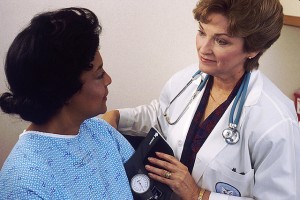By Eve Harris

Patients often make decisions about their medical treatment while sitting on an exam table in a thin cotton gown. But is this the best way to fully understand your options? Of course, some healthcare decisions are pretty easy. For example, if the treatment being offered is easy to use or has a long history of success with only mild side effects.
But overall, health care decisions are becoming more complex. Your doctor may offer more than one alternative. Picking among those alternatives may have as much to do with medical evidence as your own preferences. The process known as shared decision making empowers patients to collaborate with their doctors in choosing a treatment, as opposed to the doctor pointing a patient toward one choice.
It all has to do with risks and benefits. In a shared decision process doctors put more effort into explaining trade-offs, and patients must think more deeply about what matters most to them. The relationship of shared decision making to better health is still being studied, but we know that patients who are involved in making their own medical decisions often have less anxiety and recover more quickly.
Patient advocates embrace this approach and doctors increasingly see the importance of collaboration, too. “We have an ethical duty to inform our patients what their options are and get their preferences,” Dr. Win May told me. May is a professor at USC’s Keck School of Medicine. “Even with surgical interventions,” she said, “one can always ask ‘can we wait?’”